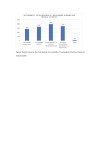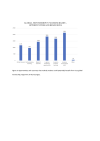Global Mentorship in Neurosurgery for Medical Students Study (the GloMNMS Study): a multinational multi-institutional cross-sectional audit
- PMID: 37553200
- PMCID: PMC10414126
- DOI: 10.1136/bmjopen-2023-071696
Global Mentorship in Neurosurgery for Medical Students Study (the GloMNMS Study): a multinational multi-institutional cross-sectional audit
Abstract
Objectives: To assess the perception of global mentorship in neurosurgery among medical students across the world. Secondary aim included investigating the factors affecting the availability and benefits of providing global mentorship scheme in neurosurgery at a medical student level.
Setting: The Global Mentorship in Neurosurgery for Medical Students Study was a multinational cross-sectional audit that included medical students currently in the years 1-6 and intercalating programmes. They were invited to complete an online survey between 11 March and 1 May 2022.
Participants: The survey was disseminated to 243 medical university ambassadors worldwide from 60 countries who distributed the survey within their respective medical student cohorts across the duration of the study.
Results: Overall, 2962 of 3017 (98.2%) responses from medical students from 60 countries worldwide were included; 1439 of 2962 (49%) and 1523 of 2962 (51%) were from years 1-3 and 4-6 medical students including intercalating degree programmes, respectively. 1712, 1502 and 1359 of responses gathered indicated that possible reasons for the lack of neurosurgical mentorship are lack of time and resources from trainees in neurosurgery, time within medical school's curriculum and awareness of societies in neurosurgery/neurology. 1276 and 1065 of medical students surveyed reported that it could also be due to lack of funding and overall inaccessibility within the area meaning there are few networking opportunities available.
Conclusions: This pilot study indicates that there is a scope for improvement regarding the availability and accessibility of neurosurgical mentorship programmes worldwide at a medical student level. The evaluation suggested that medical students would most benefit from the neurosurgical mentorship in the future by means of increased numbers of mentors within their universities, accessibility to neurosurgical departments and the ability to choose mentorship globally via a unified digital platform.
Keywords: education & training (see medical education & training); medical education & training; neurosurgery.
© Author(s) (or their employer(s)) 2023. Re-use permitted under CC BY-NC. No commercial re-use. See rights and permissions. Published by BMJ.
Conflict of interest statement
Competing interests: None declared.
Figures










References
MeSH terms
LinkOut - more resources
Full Text Sources
